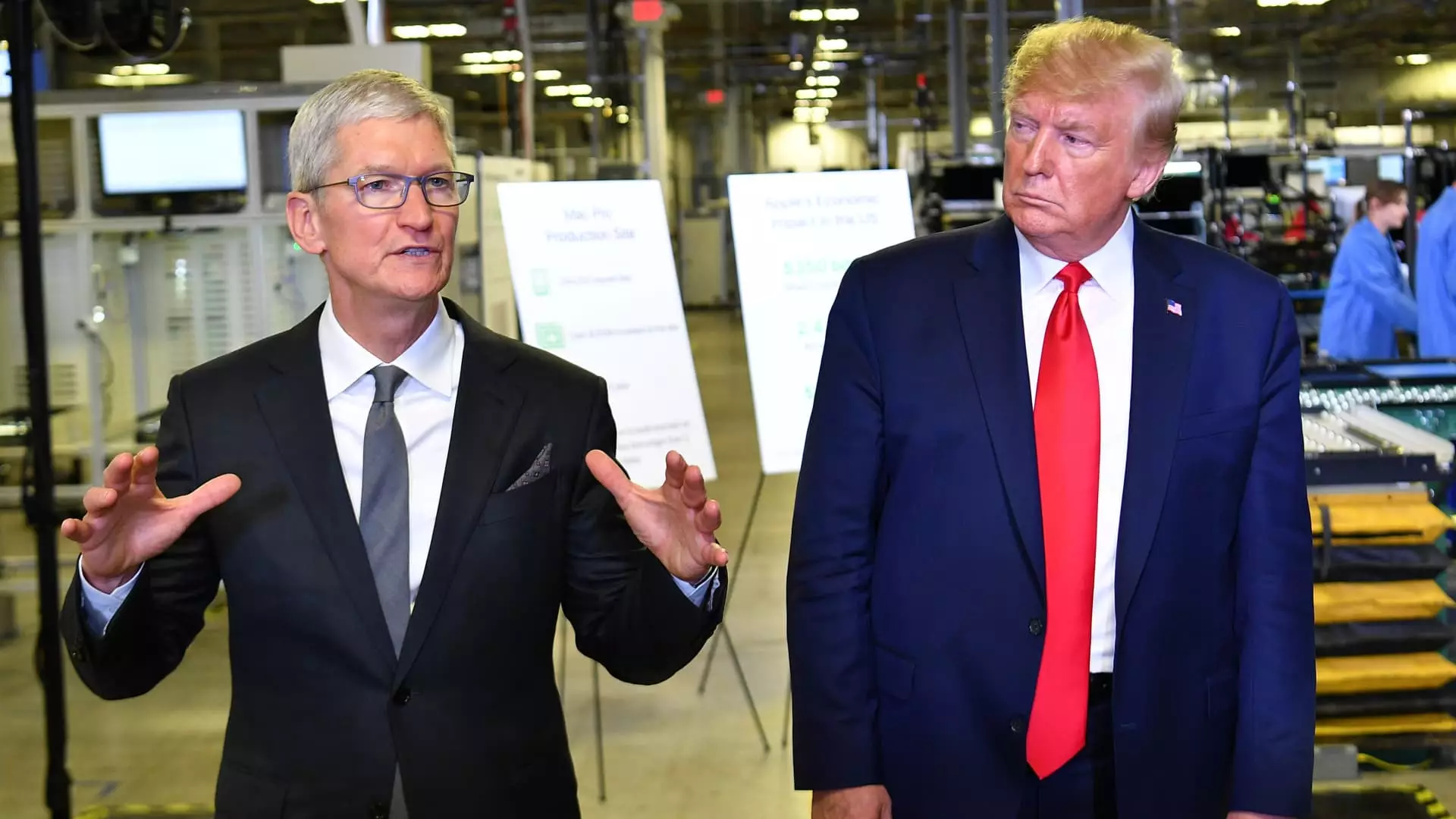The business landscape for Apple Inc. is increasingly precarious, predominantly due to the recent threats of punitive tariffs from former President Donald Trump. Trump’s bold ultimatum, demanding that any iPhones sold in the U.S. must be manufactured domestically, reflects a growing sentiment among consumers and political leaders alike for a resurgence of American manufacturing. However, can Apple truly bring its colossal production from China and India to the U.S. without incurring crippling costs? Analysts estimate that such a move could inflate the price of an iPhone to a staggering $3,500—substantially out of reach for the average consumer. Thus, while the call for increased domestic manufacturing is commendable, its feasibility sparks serious doubts.
Public Expectations vs. Corporate Reality
Trump’s insistence on U.S.-based manufacturing reveals a dynamic conflict between public expectations for corporate responsibility and the economic realities that companies must navigate. Apple’s production is already enmeshed in global supply chains, making it almost impossible for them to pivot entirely toward domestic production without significant repercussions. The more pessimistic side of this trade narrative suggests that shifting manufacturing back to the U.S. may alienate consumers, who are accustomed to the tech giant’s competitive pricing. A company built on innovation and consumer trust now faces the risk of undermining its own market position and brand loyalty.
Trade Relations: Friend or Foe?
Simultaneously, the broader context of international trade relationships complicates Apple’s already challenging scenario. Although they have made strides in diversifying their supply chain by looking toward India—a country with a friendlier trade environment—Trump’s stance could jeopardize any advantages gained. The escalating trade tensions have already disrupted smooth operations for various U.S. companies, evidenced by the recent tariff threats extending beyond Apple to other sectors as well. Consumers may have to grapple with rising prices or a diminished selection of products as the fallout from such policies plays out.
Political Theater in the Corporate World
Trump’s rhetoric about Apple is undoubtedly more than just a mere economic policy stance; it represents a shift toward more aggressive business regulation and ideological governance. The former president’s targeting of major companies, including Apple, through social media poises a troubling precedent for corporate autonomy. As someone aligned with center-right values, I perceive this as an intrusion into the free market that could yield a chilling effect on innovation and growth. The landscape of American entrepreneurship thrives when it is unshackled from unnecessary government intervention, yet now we see a governing body leveraging its power in ways that could thwart future innovations simply to play to a populist audience.
Consumer Sentiment and Brand Loyalty at Risk
As Apple navigates these turbulent waters, consumer sentiment plays an increasingly critical role. The company is facing diminishing demand in China, a vital market that has historically buoyed sales. Simultaneously, they recently announced increased trade-in incentives for iPhones in an attempt to maintain interest, signaling concern over future sales. This could indicate that conflict with Trump—whom many perceive as a protector of American interests—may paradoxically alienate the very consumers who view Apple as a powerful emblem of innovation.
Apple’s identity as a brand is intricately woven into American culture, making trade conflicts not just a financial matter but also a psychological one. If consumers perceive Apple as excessively succumbing to regulatory pressures or failing to meet local production demands, the backlash could be a considerable hurdle for the company moving forward.
While there are valid points on either side of the manufacturing debate, the core issue boils down to the balance between patriotic sentiment and economic pragmatism. If Apple—or any major corporation—fails to align with both consumer expectations and the economic realities articulated by leaders, the path forward appears fraught with uncertainty. Though Apple’s commitment to U.S. manufacturing remains admirable in principle, the implications of such policies could transform the company’s foundational structures in alarming ways. The risk of breaking the delicate balance that sustains their competitive edge could unravel the very fabric of what has made them a giant in the tech industry.

